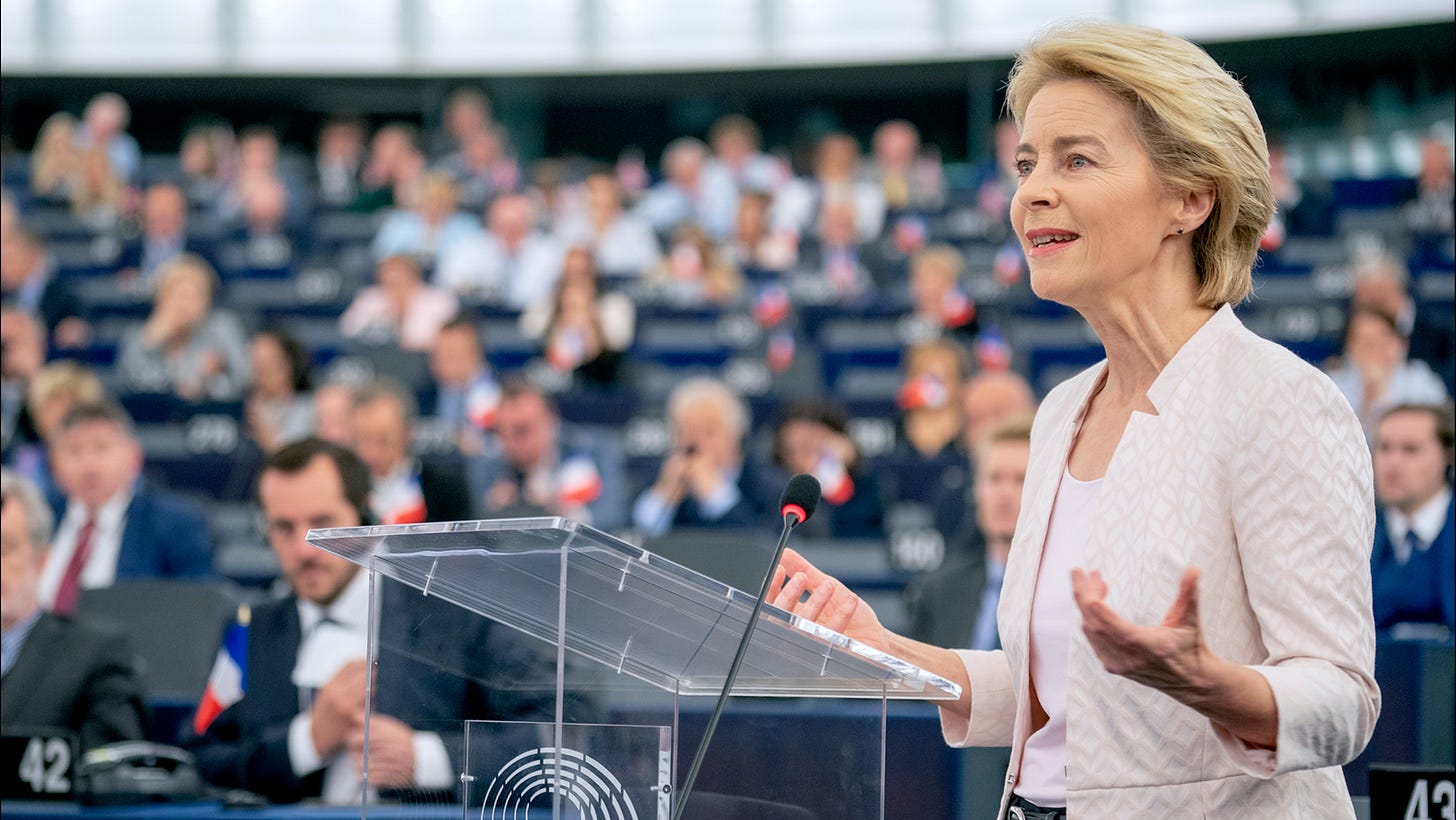Elections in a Europe in deep crisis
The paradoxical choices of Europe's political elites only hasten the disaster of a continent.
What follows is my English translation of an article by Roberto Iannuzzi, published on his Substack yesterday, 7th June 2024. (All formatting original).

Many topics are being evoked in connection with the European elections that will end this weekend, from the war in Ukraine to the rise of “Eurosceptic” parties, from climate change to immigration.
Instead, one topic, which is mostly overlooked, should stand out above all the others. The so-called “single market” has not delivered the promised prosperity. Numerous regions in Southern, Central, and Eastern Europe are in the grip of stagnation and are experiencing declining living standards.
Even some industrial regions in Western Europe are now suffering from decline. It is a trend that has never really been reversed since the 2008 financial crisis, which was followed by the euro crisis and austerity policies.
The EU is increasingly a union of inequalities, in which divergent trends continue to strengthen. The rise of the so-called ‘Eurosceptic’ far-right parties is largely a consequence of widespread discontent in the most disadvantaged regions.
Prolonged austerity policies, the redefinition of supply chains initiated by the Covid-19 crisis, and the European decision to renounce cheap energy supplied by Russia, have only deepened the crisis.
To this must be added the founding problems of the European Union, in particular its democratic deficit. The Maastricht Treaty that came into force in 1993 is technically an intergovernmental agreement between states. Power is centralised in the hands of the European Commission and the European Council, two unelected bodies.
The parliament that is being voted in these days, the only institution to be a direct expression of the European citizens, is also the one with the least powers, consisting mostly in the power to ratify and supervise the work of the first two bodies.
The EU's democratic deficit adds to that of its member states, which (like most Western democracies) suffer from a growing crisis of representativeness.
Far from addressing such pressing problems, national and European political elites have turned the EU debate into a clash between pro-Europeans and anti-Europeans, often accusing the latter of colluding with powers that would threaten Europe from outside.
Instead of focusing on the internal problems that undermine the foundations of the Union, they wave the bogeyman of geopolitical crises (from Ukraine to Gaza) and general international instability, which allegedly would have plummeted on Brussels without any responsibility on the part of the member states.
Purporting to respond to such crises in this way, the EU is now focusing on a new phase of enlargement without having solved the problems caused by the previous phase, which turned it into an uneven bandwagon of 27 countries (just last 1st May marked the 20th anniversary of the accession of no less than 10 new members to the Union, 8 of which were former communist countries).
There are now 9 more candidate countries, in the Balkans and Eastern Europe, including Ukraine, Georgia and Moldova, nations closely linked, historically and geographically, to Russia.
This process of eastward enlargement, which in many ways follows that of NATO, is accompanied by another phenomenon: that of the gradual transformation of the EU from an organisation primarily aimed at the economic development of its member states into an entity whose structure is directly shaped by defence and strategic-military objectives.
This vertically structured change was largely encouraged by the European Commission led by President Ursula von der Leyen, who introduced the first defence industrial strategy the Union has ever had.
All this is happening at a time when what was hitherto considered, rightly or wrongly, the engine of Europe - the so-called Franco-German axis - is itself going through a deep crisis.
It is due to the major economic difficulties in which both Paris and Berlin are struggling, to which are added the growing misunderstandings between the two capitals concerning the definition of European strategic priorities.
The disagreement revolves around the relationship with the US on the one hand, and the allocation of military leadership on the continent on the other. Germany prefers a preferential relationship with Washington and rearmament in close synergy with the US military-industrial complex.
France, on the other hand, proposes itself as the standard-bearer of a European strategic autonomy based on the revival of the old continent's defence sector, which in turn is centred on the French war industry and the nuclear arsenal that Paris possesses.
Proposals that meet with the coldness of German Chancellor Olaf Scholz, who also resents French leader Macron's military activism in Ukraine, in particular his ventilated hypothesis of sending European troops to the country at war with Moscow.
Once again, however, at the heart of the dispute are not the economic and political problems that really bedevil the EU.
Emblematic of this paradox is the position of the French president, who at the European level presents himself as the leader of a strategically more autonomous and militarily more aggressive Union, while at the same time risking losing elections at home because of the economic and social problems his country suffers from.



